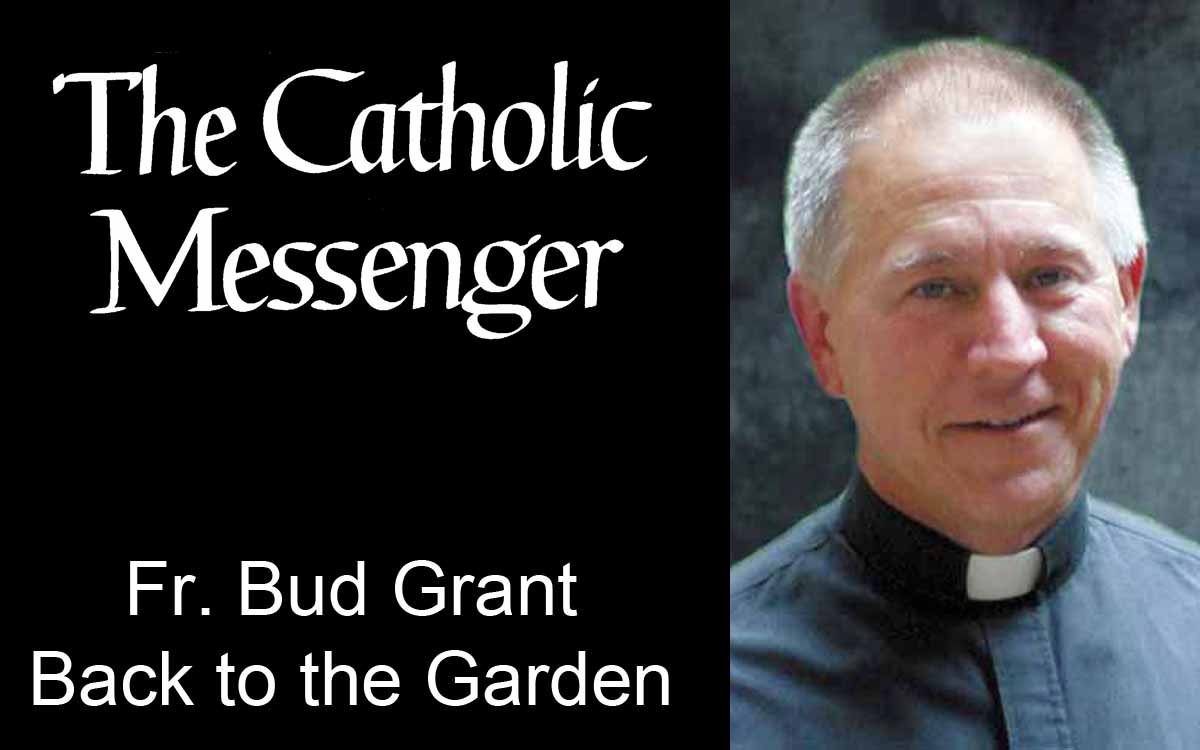By Father Bud Grant
Here’s a simple question: does the current official U.S. government policy of wiping out references to climate change while also reducing, relaxing and removing environmental protections erode our social sense of environmental responsibility? My hunch was that it would. After all, it supplies a handy excuse for feeling better about things. But it wouldn’t be honest: these problems won’t go away just because our government exploits our discomfort with such worrisome things.
 Surprisingly, recent polls do not show a weakening in public concern for environmental issues. Sure, these polls are, for good scientific reasons, several months behind the calendar date and opinions can change quickly. Nonetheless, the data is robust and enduring. Most Americans accept that there are ecological problems, including climate change; that they are serious; and that the government (from local to national) ought to be engaged in addressing them.
Surprisingly, recent polls do not show a weakening in public concern for environmental issues. Sure, these polls are, for good scientific reasons, several months behind the calendar date and opinions can change quickly. Nonetheless, the data is robust and enduring. Most Americans accept that there are ecological problems, including climate change; that they are serious; and that the government (from local to national) ought to be engaged in addressing them.
According to a poll by Energy Policy Institute/AP-NORC Center for Public Affairs (Oct. 2017), 61 percent of Americans think the government should address climate change. When screened for those who actually accept the reality of climate change, the numbers are even better: seven in 10 Republicans and “nearly all” Democrats want action. Most Americans oppose the repeal of the Clean Power Plan and withdrawal from the Paris Accord.
Yet, there remains a noticeable party gap concerning what should not be a political issue. Despite some significant narrowing, political ideology continues to be the most reliable predictor of whether or not a person accepts the science of climate change. Folks are also influenced, for valid reasons, by pocketbook issues: few are willing to embrace a climate tax; most approve fracking if it reduces their bills. But this economic factor tends to fluctuate with perceptions of how well one is doing financially. According to this study, people tend to default to partisan positions: not “fact-based” positions, mind you, or “broad scientific consensus,” but political ideology.
This should concern us. It means that politicians can (and obviously are) putting thumbs on the scales of public awareness of climate change for their own short-term political gain. Let me say this more bluntly: because politicians think it will get them votes they are willing to deceive us about the single-most urgent threat to the future of our children and of this planet. In the meantime, the director of the EPA and the Secretary of the Interior literally scrub climate change from the civic conversation while reducing protections of our water, air and soil, and even our national parks.
But there is this, too. The “Francis Effect” is still swaying public opinion. A series of studies have been undertaken that measure how much Pope Francis is influencing Americans on environmental issues. In its most recent iteration, researchers simply showed people a photo of the pope before asking them basic questions about the environment. The result was a 5 percent increase in the number of those who perceive climate change to be a moral issue. “Moral” — not political, not ideological and not economic.
This should not be too remarkable, really. It is just the Holy Father doing his job. But, yeah, it is a very big deal. Notably, he is most influential among conservatives and Republicans, where the spike was 9 percent. But the most eye-raising observation of the researchers was that getting people to consider “the ethical consequences of environmental destruction may shift behavior more effectively than thinking in utilitarian terms” (Pacific Standard, 2.2.17). In other words, ethical rightness is more important to people than economic self-interest or political self-identity.
It can’t be known whether this Francis Effect will be shown to have weathered another year of official governmental policy of climate denial and dismantling of environmental protections. But if people are more driven by ethical goodness than money or ideology, then perhaps we can change the political climate, as it were.
(Father Bud Grant is a professor of theology at St. Ambrose University in Davenport.)











